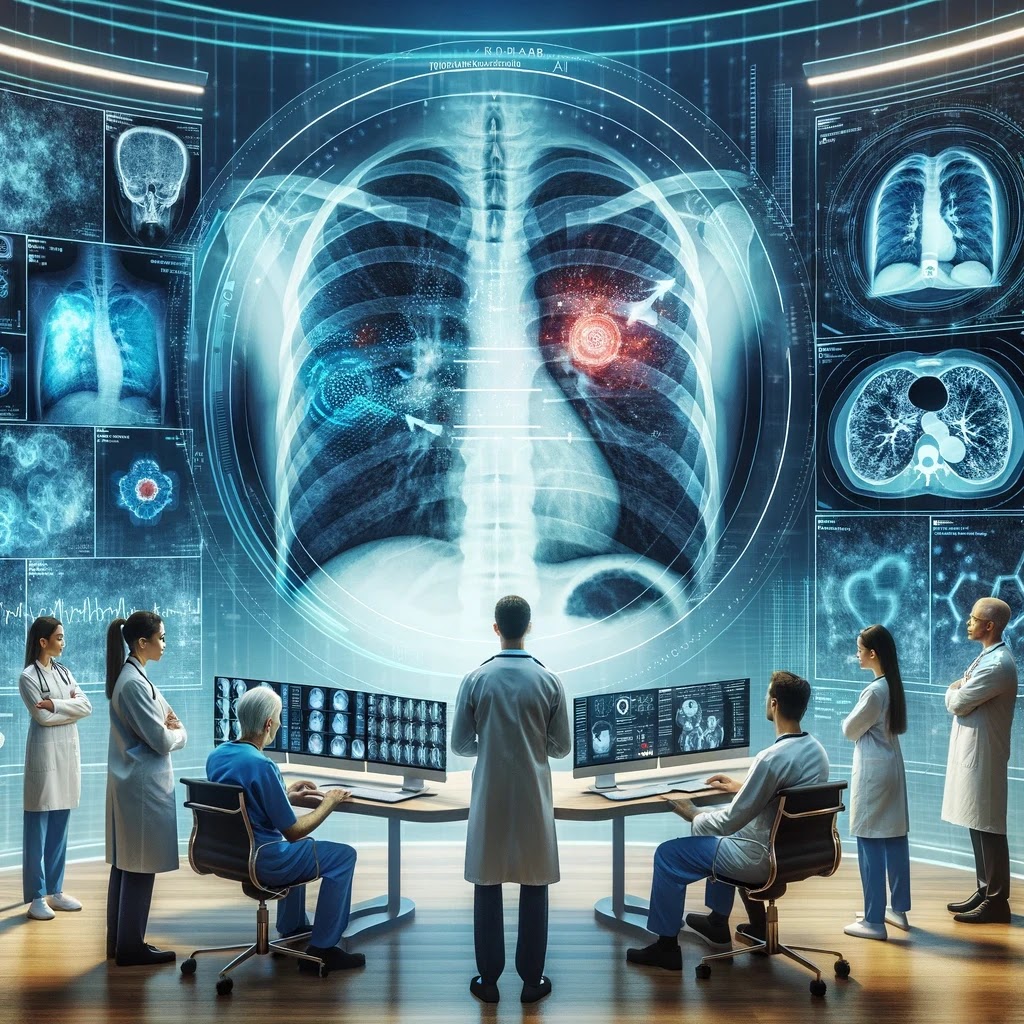2024 Year in Review



Children’s National Hospital, in partnership with Rhino Health, has spearheaded the study presented at the SPIE Medical Imaging conference and confronts the urgent challenge of diagnosing conditions like COVID-19 in pediatric patients through chest X-rays (CXR). This collaborative effort, led by Abhijeet Parida, Marius George Linguraru, and Syed Muhammad Anwar, from Children’s National Hospital, tackles the unique difficulties inherent in pediatric CXR analysis, such as the subtle differences in disease presentation compared to adults and the lack of specifically labeled pediatric datasets. Advanced technological approaches, supported by the innovative solutions provided by Rhino Health’s Federated Computing Platform, have been key to enhancing diagnostic accuracy and maintaining the privacy of sensitive data.
The challenge of diagnosing diseases like COVID-19 and other conditions like lung opacity, pneumonia, and acute respiratory distress syndrome in pediatric patients through chest X-rays (CXR) underscores the urgent need for innovative solutions in medical diagnostics. These complexities necessitate advanced technological approaches to enhance diagnostic accuracy while ensuring data privacy.
Children’s National Hospital’s study introduced an AI-driven solution using a Federated Self-Supervised Learning (FSSL) framework to categorize pediatric CXRs into binary COVID-19 and non-COVID-19 classifications, significantly enhancing the Vision Transformer (ViT) performance for accurate COVID-19 detection. The deployment of the Rhino Health Federated Computing Platform facilitated a seamless FL setup crucial for the collaborative development of AI-driven models across disparate healthcare institutions. This setup allowed for the local training of AI models without exposing sensitive data, aligning with the requirements of Health Insurance Portability and Accountability Act (HIPAA).
The Rhino Health platform was critical in orchestrating the FL process. The Federated Computing Platform facilitated the integration of model parameters from the disparate Rhino Health Clients, employing algorithms like FedAvg to aggregate these parameters into a consensus model. This central coordination ensured the efficient and secure transmission of model updates, enhancing collective intelligence without compromising data privacy.
Each site, acting as a node in the federated network, contributed to training a global model by processing data locally and sharing model updates. This architecture not only ensured the protection of patient data but also used the diversity of datasets across institutions to improve the model’s accuracy and generalizability.
The Rhino Health Federated Computing Platform facilitated the integration of Vision Transformers (ViT) and Self-Supervised Learning (SSL) within a federated learning framework. ViTs, with their capacity to interpret complex patterns in medical imagery, dissect CXRs into patches to learn contextual relationships. This method enables the detection of indicators of conditions like COVID-19, which traditional diagnostics may overlook. The FSSL-pre-trained ViT demonstrated a significant improvement in distinguishing between COVID-19 and non-COVID-19 cases in pediatric CXRs, as evidenced by it higher Area Under the Precision-Recall Curve (AUPR), indicating its superior balance between precision and recall compared to a fully supervised model.
Complementing ViTs, SSL pre-trains the AI model on a broad dataset of adult CXRs. This foundational phase allows the model to understand CXR features, which are then refined with pediatric data. The scarcity of labeled pediatric CXR features, which are then refined with pediatric data. The scarcity of labeled pediatric CXR data poses a significant hurdle, yet SSL, enabled by the Rhino Health Federated Computing Platform, addresses this challenge head-on. The federated learning system implemented across multiple sites ensures the model is robust, adaptable, and sensitive to pediatric-specific variations, making a significant leap in pediatric healthcare diagnostics.
The architecture of the Rhino Health Federated Computing Platform, encompassing both the Rhino Health Client and Cloud, is pivotal in this integration. It allows each participating site to train local models on unique datasets securely. These models’ parameters are aggregated into a global model via the Rhino Health Cloud, employing federated learning algorithms such as FedAvg. This setup maintains the integrity of sensitive patient data and leverages the collective intelligence from various institutions, significantly enhancing the model’s diagnostic performance.
The study showcases the potential of combining ViT and SSl with federated learning to overcome the limitations of pediatric CXR analysis and sets new standards for AI-driven diagnostics. The success of this approach hints at a scalable, efficient, and privacy-compliant methodology that can be extended beyond COVID-19 to other medical conditions. The study also marks a significant advancement by leveraging vision transformers and federated learning-based self-supervised pre-training on adult CXR data to improve pediatric COVID-19 diagnosis performance.
Looking forward, the Rhino Health Federated Computing Platform stands at the forefront of technological innovation in healthcare diagnostics. Potential enhancements in encryption technologies, machine learning algorithms, and standardized protocols for federated learning implementation promise to further revolutionize the field. This research paves the way for a future where AI-driven healthcare solutions are developed and deployed in a secure, inclusive, and patient-centric manner, fostering an environment ripe for continuous innovation and improved patient outcomes.
Contact Rhino Health today to discover how our technology can empower your research capabilities through collaborative innovation, preserving the utmost privacy and security standards.